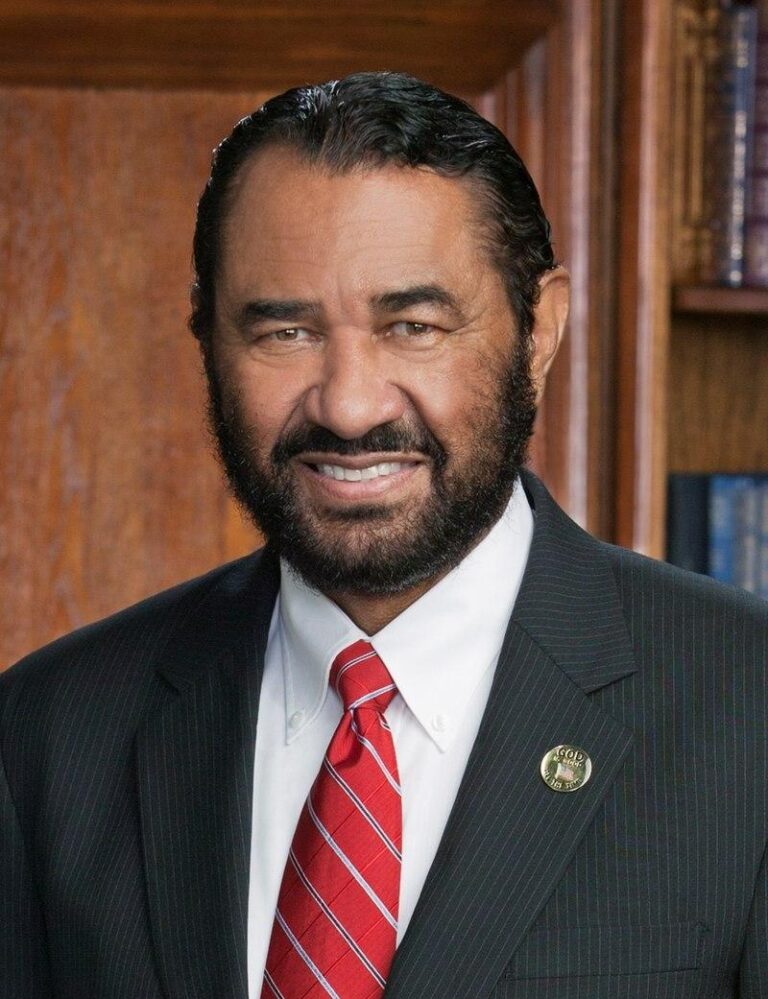Houston Congressman Al Green has accused a Tennessee representative of using a racial slur against him by referring to him as “boy” during a congressional session. The incident, which has sparked outrage and calls for accountability, highlights ongoing tensions over racial language and decorum within the halls of government. Houston Public Media reports on the details of the confrontation and its wider implications for race relations in American politics.
Houston Congressman Al Green Accuses Tennessee Representative of Racial Slur in Heated Exchange
Houston Congressman Al Green sparked controversy during a recent congressional session when he accused a Tennessee representative of using a racial slur by referring to him as “boy.” The tension escalated in what witnesses describe as a heated verbal exchange, reflecting ongoing deep divisions within the House. Green promptly called out the language, stating it was not only offensive but also a violation of the chamber’s standards of conduct. This incident has reignited conversations about race relations and decorum among lawmakers.
The representative from Tennessee has yet to issue a formal apology, while several colleagues expressed concern over the inflammatory language. The House Ethics Committee is reportedly reviewing the matter, emphasizing the need to maintain respect in legislative discourse. Key reactions include:
- Calls for apology: Multiple members urge the Tennessee rep to clarify or apologize.
- Statements on decorum: Leaders remind members about the importance of professionalism.
- Public response: Civil rights groups demand accountability and sensitivity training.
| Party | Reaction | Next Steps |
|---|---|---|
| Democratic | Condemnation of racial slur | Ethics inquiry |
| Republican | Calls for dialogue and review | Possible sanctions |
| Civil Rights Groups | Demand immediate apology | Advocate training |
Historical Context and Significance of the Term Boy in Racial Disputes
The term “boy” has roots deeply embedded in the history of racial discrimination in the United States. Throughout the Jim Crow era and beyond, it was frequently used as a derogatory label directed at African American men, regardless of their age or status. This usage was intended to infantilize and demean Black men, denying them the dignity and respect afforded to others. Such language was a tool of systemic racism, reinforcing oppressive social hierarchies and perpetuating racial inequality. Calling a Black politician “boy” today evokes this painful legacy and underscores ongoing struggles with racial sensitivity and respect in public discourse.
In contemporary settings, the word remains a potent symbol of racial animus, often igniting heated debates about intent and impact. The continued presence of this term in political arenas reveals how historical prejudices persist in modern interactions. The following list highlights why the term retains its charged significance:
- Historical dehumanization linked to forced servitude and segregation.
- Used to belittle and undermine African American men’s authority and achievements.
- Continues to provoke strong emotional responses due to its racist connotations.
- Acts as a flashpoint in conversations about race, power, and respect.
| Period | Use of “Boy” | Social Context |
|---|---|---|
| Early 1900s | Common derisive term | Segregation, Jim Crow laws |
| Mid 20th Century | Used to infantilize Black men | Civil rights struggle |
| Modern Day | Rare but inflammatory | Political and social disputes |
Responses from Political Leaders and Calls for Congressional Accountability
Political leaders across the spectrum swiftly condemned the use of racially charged language in the congressional exchange. Several lawmakers called for a formal investigation to uphold the standards of civility and respect within the House of Representatives. Houston Congressman Al Green’s allegation that a Tennessee representative referred to him as “boy” — a term historically laden with racial condescension — has intensified calls for congressional decorum and accountability.
Key demands from members include:
- Public apology and retraction from the accused member
- A congressional ethics committee review
- Implementation of sensitivity and diversity training for all members
- Legislative measures to strengthen conduct codes
| Leader | Position | Response |
|---|---|---|
| Speaker of the House | Presiding Officer | Called for immediate inquiry and emphasized unity |
| House Majority Leader | Party Leader | Demanded accountability and reaffirmed zero tolerance for hate speech |
| Congressional Black Caucus Chair | Civil Rights Advocate | Stressed the harmful impact of racial slurs and pledged action |
Recommendations for Addressing Racial Insensitivity in Legislative Settings
Addressing racial insensitivity within legislative environments demands a multifaceted approach that prioritizes education, accountability, and open dialogue. Implementing mandatory diversity and inclusion training for all elected officials and staff can help foster a deeper understanding of historical contexts and the impacts of racially charged language. Such training should be recurring and tailored to the specific dynamics within governmental bodies to ensure sustained cultural competency.
Additionally, creating clear and enforceable policies against discriminatory conduct is essential to uphold respect and professionalism. Legislators should be encouraged to actively participate in peer-led discussions and restorative practices that confront biases and promote reconciliation. The table below outlines some key measures recommended to mitigate racial insensitivity:
| Measure | Description | Outcome |
|---|---|---|
| Diversity Training | Regular sessions on racial history & bias awareness | Increased cultural understanding |
| Strict Conduct Policies | Codified rules with penalties for racial insensitivity | Clear behavioral expectations |
| Peer Dialogues | Facilitated conversations among legislators | Better communication & reconciliation |
Closing Remarks
The incident between Congressman Al Green and the Tennessee representative has sparked renewed discussions about race and respect within the halls of Congress. As the situation continues to unfold, many await further statements and possible actions from House leadership. The episode underscores ongoing challenges surrounding decorum and racial sensitivity in American politics. Houston Public Media will continue to monitor developments and provide updates on this evolving story.




